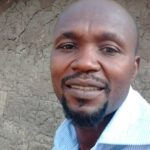Kivu Women Stand Against Stigma
- Neelley Hicks
- Jul 12, 2018
- 3 min read
Written by Judith Osongo Yanga, edited by Quinn Needham.
Horrific acts of war have ravaged the provinces and peoples of Kivu. At the center of these terrors lies the manipulation of sexual violence against women and children as a weapon of domestic destruction. Since stigmatization of rape victims remains commonplace throughout the region, survivors of these gruesome assaults are often abandoned by their husbands and families. Additionally, many women and young girls have been forsaken by their communities and the shame cast upon these victims has forced them to live out their lives in ostracization.
Hope on the Horizon
Yet, despite the bleakness of the current situation, there is hope on the horizon. Harper Hill Global has teamed up with passionate community leaders in Kivu to stand up against stigma through community-based educational programs, video, and workshops. District Rev. Ezechiel Mathe, the DS of Beni, expressed his excitement “to participate in this workshop against stigma [for] victims of sexual violence,” and added that “we are delighted with [the] work done by the communication service to make this training effective. Harper Hill Global’s logistic support has allowed us to have another way of showing how to deal with the victims of sexual violence.” The lay leader of Amani local church in Goma echoed this sentiment, noting that “these victims have the right to love and family affection.”
A Personal Testimony
Communication is the surest way to help us overcome stigma. Therefore, we must speak out and become advocates for these victims of sexual violence. Mrs. Justine Tshongo, president of women of Beni district, is encouraged by the campaign’s push for progress and feels “reassured [that] with the support of Harper Hill Global we will be able to come to sensitize population of Beni.” The fight against stigmatization has a special place in her heart as she has become the caretaker of a group of rape survivors. She explains, “I’m keeping the orphans and some of the girl victims abandoned by their families…they are hiding in the ranks of orphans to avoid being stigmatized by the surrounding population. I hope that this educational activity will take place in Beni to serve as a model for [all] populations.”
The materials and workshops implemented by local churches with the help of Harper Hill Global also seek to comfort rape victims, and reassure them of their worth despite the challenges they may face. Masika Anne Marie, a sexual assault survivor, attended one of these workshops and detailed her experience: “at the beginning of the workshop I was really demoralized but a hope appeared to me towards the end.” She especially appreciated the seminar’s message of acceptance, “which speaks about my importance in the society,” as well as the discussion’s focus on educating both women and men about stigma, “which is launched to all the population to teach boys to be good men… [thus, everyone] is educated on the consideration of victims of rape.”

Mama Salome Buhendwa from the Uvira district, another attendee, was most moved by the workshop’s video animation because she felt they encouraged community members “to avoid stigmatization of anyone. As Christians we must teach people love and forgiveness because we are all created in the image of God. Despite what man can [do] we must always keep this love of [our] neighbors.”
Rev. Henriette Omoyi is another community leader committed to serving those affected by rape at a local institution in Goma. She feels “happy that my church is immersed in this campaign against stigma for the victims of sexual violence,” and pledges “to help [the] church in the listening sessions [for] victims of sexual violence” by voicing the victims’ needs and concerns to her congregation.
Reaching Far and Wide
Another strong female advocate, Dr. Marie Claire Dianja, attended a workshop with eighty other community members and female leaders from each district of the Kivu annual conference. Dr. Diandja recognized a sense of camradery among attendees through their shared goals and commended everyone’s “spirit of commitment in the fight against stigma.”
The combined work of these and countless other community members alongside Harper Hill Global has already made remarkable headway in changing cultural attitudes towards rape victims. Yet, our fight against these injustices has just begun. Moving forward we must rely on the willingness of community members to engage in these dialogues and share our messages of hope and acceptance.
Perhaps our mission is best summarized by Mama Godelive Wakubenga of the local Francophone church in the district of Uvira. She declares, “we must all stand up against stigma because each of us is stigmatized in one way or another… let’s get up… and say we stand up against stigma in all forms.”





Comments